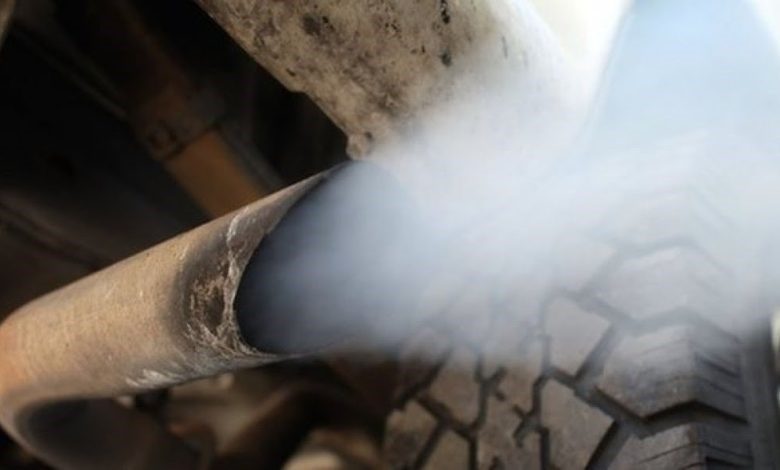Export Of Used Vehicles To Developing World Contributing To Air Pollution, Hindering Climate Action – UNEP Report

According to a new report by the UN Environment Programme (UNEP), millions of used cars, vans and minibuses exported from Europe, the United States and Japan to the developing world contribute significantly to air pollution.
The report added that these vehicles are of poor quality and are hindering efforts to mitigate the effects of climate change.
The Global Overview of Used Light-Duty Vehicles: Flow, Scale and Regulation report showed that between 2015 and 2018, 14 million used light-duty vehicles were exported worldwide.
Some 80 per cent went to low- and middle-income countries, with more than half going to Africa.
The report called for action to fill the current policy vacuum with the adoption of harmonized minimum quality standards that will ensure used vehicles contribute to a cleaner, safer fleet in importing countries.
UNEP statement on its website stated that globally, the transport sector is responsible for nearly a quarter of energy-related global greenhouse gas emissions.
Specifically, vehicle emissions are a significant source of the fine particulate matter (PM2.5) and nitrogen oxides (NOx) that are major causes of urban air pollution.
“Cleaning up the global vehicle fleet is a priority to meet global and local air quality and climate targets,” said Inger Andersen, Executive Director of UNEP.
“Over the years, developed countries have increasingly exported their used vehicles to developing countries; because this largely happens unregulated, this has become the export of polluting vehicles.
“The lack of effective standards and regulation is resulting in the dumping of old, polluting and unsafe vehicles.
“Developed countries must stop exporting vehicles that fail environment and safety inspections and are no longer considered roadworthy in their own countries, while importing countries should introduce stronger quality standards,’ she added.
The report, based on an in-depth analysis of 146 countries, found that some two-thirds of them have ‘weak’ or ‘very weak’ policies to regulate the import of used vehicles.
It also showed that where countries have implemented measures to govern the import of used vehicles – notably age and emissions standards – these give them access to high-quality used vehicles, including hybrid and electric cars, at affordable prices.
For example, Morocco only permits the import of vehicles less than five years old and those meeting the EURO4 European vehicles emission standard.
As a result, it receives only relatively advanced and clean used vehicles from Europe.
The report found that African countries imported the largest number of used vehicles (40 per cent) in the period studied, followed by countries in Eastern Europe (24 per cent), Asia-Pacific (15 per cent), the Middle East (12 per cent) and Latin America (nine per cent).
Through its ports, the Netherlands is one of the exporters of used vehicles from Europe. A recent review conducted by The Netherlands of its exports found that most of these vehicles did not have a valid roadworthiness certificate at the time of export.
Most vehicles were between 16 and 20 years old, and most fell below EURO4 European Union vehicles emission standards.
For example, the average age of used vehicles exported to the Gambia was close to 19 years old, while a quarter of used vehicles exported to Nigeria were almost 20 years old.
“These results show that urgent action needs to be taken to improve the quality of used vehicles exported from Europe. The Netherlands cannot address this issue alone.
“Therefore, I will call for a coordinated European approach, and close cooperation between European and African governments, to ensure that the EU only exports vehicles that are fit for purpose, and compliant with standards set by importing countries” Stientje Van Veldhoven, The Netherlands Minister for the Environment, said.
Poor quality used vehicles also lead to more road accidents. According to the report, many of the countries with “very weak” or “weak” used vehicles regulations, including Malawi, Nigeria, Zimbabwe, and Burundi, also have very high road traffic death rates.
Countries that have introduced used vehicles regulations also see safer fleets and fewer accidents.
UNEP, with the support of the UN Road Safety Trust Fund and others, is part of a new initiative supporting the introduction of minimum used vehicles standards.
The initiative’s first focus will be countries on the African continent; a number of African countries have already put in place minimum quality standards – including Morocco, Algeria, Côte d’Ivoire, Ghana and Mauritius – with many more showing interest in joining the initiative.
“The impact of old polluting vehicles is clear. Air quality data in Accra confirms that transport is the main source of air pollution in our cities.
“This is why Ghana is prioritizing cleaner fuels and vehicle standards, as well as electric bus opportunities.
“Ghana was the first country in the West Africa region to shift to low sulphur fuels and this month has imposed a 10-year age limit for used vehicle imports,” said Prof. Kwabena Frimpong-Boateng, Ghana’s Minister for Environment, Science, Technology & Innovation.
Meanwhile, in February, Ministers of Environment and Energy of the fifteen countries of the Economic Community of West African States (ECOWAS) in Burkina Faso, adopted a set of regulations to introduce cleaner fuels and vehicles in the region.
Support Our Journalism
There are millions of ordinary people affected by conflict in Africa whose stories are missing in the mainstream media. HumAngle is determined to tell those challenging and under-reported stories, hoping that the people impacted by these conflicts will find the safety and security they deserve.
To ensure that we continue to provide public service coverage, we have a small favour to ask you. We want you to be part of our journalistic endeavour by contributing a token to us.
Your donation will further promote a robust, free, and independent media.
Donate HereStay Closer To The Stories That Matter




